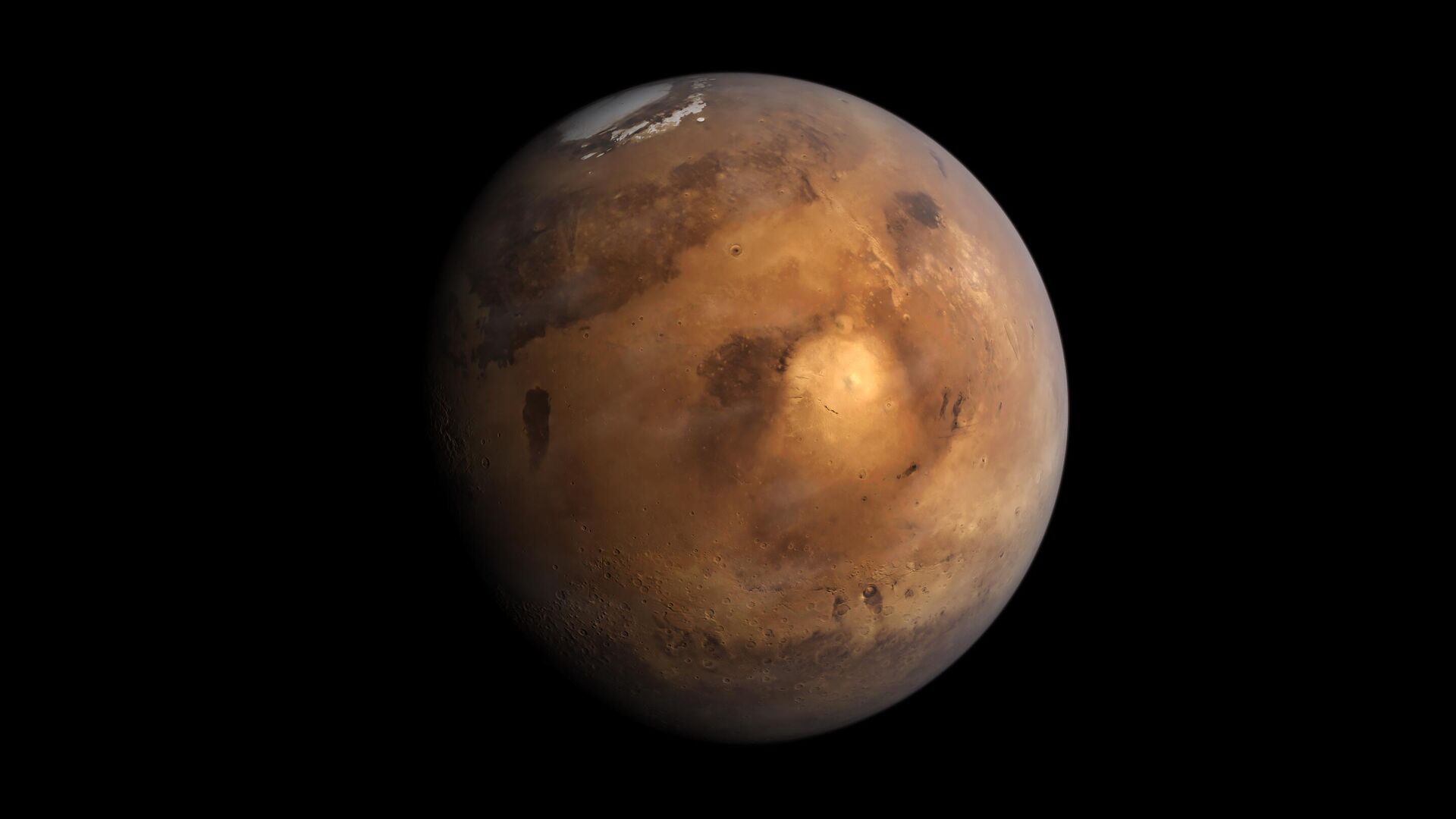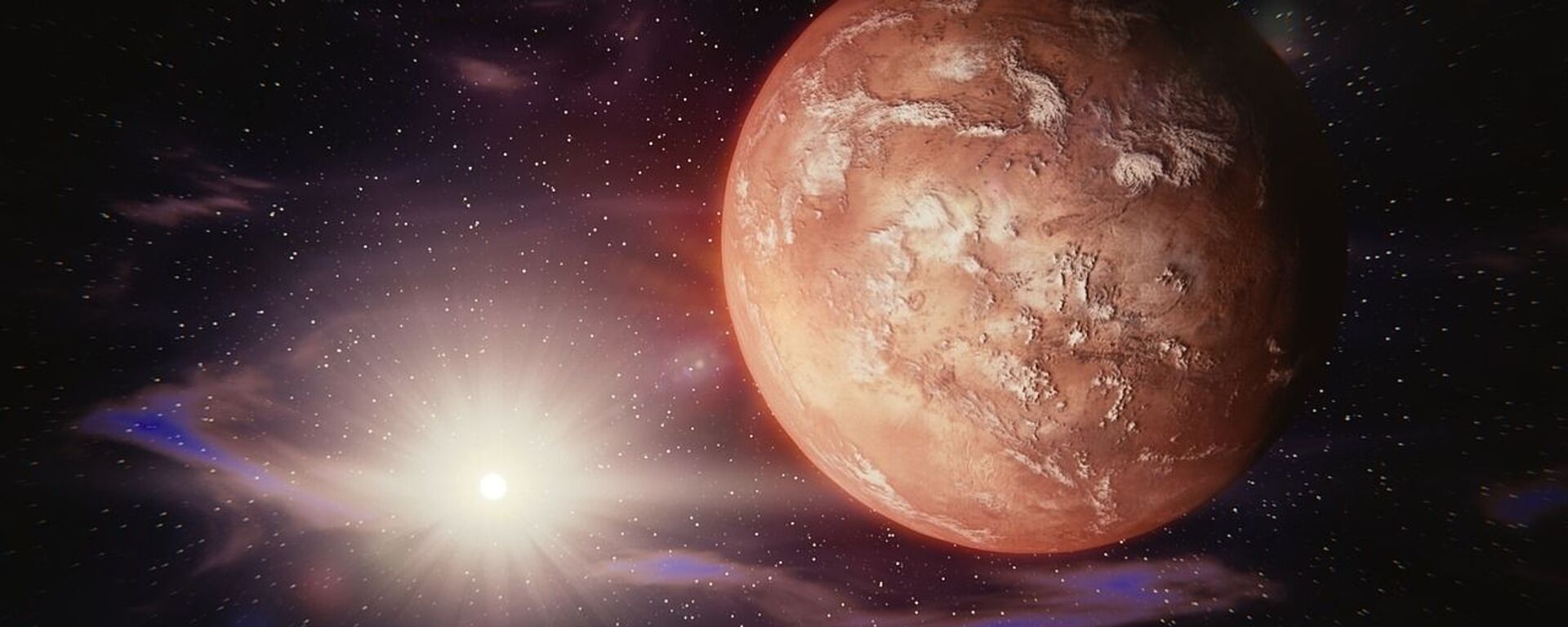https://sputnikglobe.com/20220821/bringing-green-to-red-planet-farming-on-mars-may-be-possible-new-study-suggests-1099819492.html
Bringing Green to Red Planet: Farming on Mars May Be Possible, New Study Suggests
Bringing Green to Red Planet: Farming on Mars May Be Possible, New Study Suggests
Sputnik International
Researchers postulate that a certain plant can grow in soil similar to the Martian regolith, and that the plant’s biomass can then be used as fertilizer to... 21.08.2022, Sputnik International
2022-08-21T11:27+0000
2022-08-21T11:27+0000
2022-11-30T10:10+0000
science & tech
plants
growth
study
mars
https://cdn1.img.sputnikglobe.com/img/07e6/04/18/1095002428_0:0:2880:1620_1920x0_80_0_0_722efd87258f093dff33ebbceadfd662.jpg
While scientists are yet to figure out how to protect a crewed mission to Mars from the unsafe levels of radiation the astronauts would be exposed to while in space and on the planet’s surface, one research team has already come up with a scheme that may make growing crops in Martian soil possible.In their study, published this week in PLOS One, the researchers note that the low nutrient content of soil and high salinity of water on Mars make farming there problematic, to put it mildly.In order to tackle this problem, the team proposes “simple and efficient strategies for treating basaltic regolith simulant soil and briny water simulant for suitable resources for growing plants.”Regarding Martian soil, the researchers suggest that alfalfa plants can grow in it, and that the “alfalfa biomass” can be used as fertilizer to grow crops such as turnip, radish, and lettuce.As for the water on Mars, the team notes that marine cyanobacterium Synechococcus sp. PCC 7002 “effectively desalinates” the briny water that simulates the water found on Mars, with the researchers adding that “filtration through basalt-type volcanic rocks” can further enhance the desalination process.“Our findings indicate that it is possible to grow food crops with alfalfa treated basaltic regolith martian soil as a substratum watered with biodesalinated water,” the researchers postulate in the abstract of their work.
https://sputnikglobe.com/20220519/new-study-of-martian-meteorite-casts-doubt-on-life-existing-on-red-planet-in-distant-past-1095639441.html
mars
Sputnik International
feedback@sputniknews.com
+74956456601
MIA „Rossiya Segodnya“
2022
News
en_EN
Sputnik International
feedback@sputniknews.com
+74956456601
MIA „Rossiya Segodnya“
Sputnik International
feedback@sputniknews.com
+74956456601
MIA „Rossiya Segodnya“
science & tech, plants, growth, study, mars
science & tech, plants, growth, study, mars
Bringing Green to Red Planet: Farming on Mars May Be Possible, New Study Suggests
11:27 GMT 21.08.2022 (Updated: 10:10 GMT 30.11.2022) Researchers postulate that a certain plant can grow in soil similar to the Martian regolith, and that the plant’s biomass can then be used as fertilizer to grow actual food crops.
While scientists are yet to figure out how to protect a crewed mission to Mars from the
unsafe levels of radiation the astronauts would be exposed to while in space and on the planet’s surface, one research team has already come up with a scheme that may make growing crops in Martian soil possible.
In their study, published this week in PLOS One, the researchers note that the low nutrient content of soil and high salinity of water on Mars make farming there problematic, to put it mildly.
In order to tackle this problem, the team proposes “simple and efficient strategies for treating basaltic regolith simulant soil and briny water simulant for suitable resources for growing plants.”
Regarding Martian soil, the researchers suggest that alfalfa plants can grow in it, and that the “alfalfa biomass” can be used as fertilizer to grow crops such as turnip, radish, and lettuce.
As for the water on Mars, the team notes that marine cyanobacterium Synechococcus sp. PCC 7002 “effectively desalinates” the briny water that simulates the water found on Mars, with the researchers adding that “filtration through basalt-type volcanic rocks” can further enhance the desalination process.
“Our findings indicate that it is possible to grow food crops with alfalfa treated basaltic regolith martian soil as a substratum watered with biodesalinated water,” the researchers postulate in the abstract of their work.


